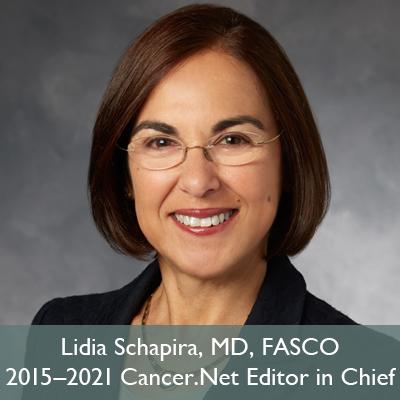
Every June in Chicago, the American Society of Clinical Oncology (ASCO) holds its Annual Meeting. There is excitement and anticipation in the air as doctors and patients alike look forward to learning about the latest in cancer research.
Through research, like that highlighted at ASCO’s Annual Meeting, we identify new approaches to cancer treatment that lead to better outcomes for patients. Research also unveils new ways of handling difficult symptoms and minimizing the side effects of treatment. I believe that scientific innovation will bring us closer to our ideal treatment situation—when treatments are matched to the needs and preferences of individual patients. We can only accomplish this if cancer research truly represents a joint effort between patients and doctors, with a common purpose and shared effort and responsibility.
Clinical trials involve risks and rewards
Cancer research is conducted through clinical trials. Patients who participate in clinical trials sometimes receive early access to promising drugs and treatment options that are not easily available. But cancer research also involves risk. This is because we don’t know if the study treatment is better, and we often don’t know all of the possible side effects of the treatment. These studies may involve a lot of risk, especially when using new drugs that have come straight from the laboratory. For some people, adding this level of uncertainty to their cancer treatment is not something they want to take on. If that is the case for you, look for trials in which the risk is very low. For example, some trials require patients to fill out questionnaires or record their pill taking to track quality of life.
Patient safety is a priority
Many people are also concerned that they will lose control over their treatment in a research trial. Specifically, they worry that they may be assigned a placebo. A placebo is a substance that has no therapeutic effect; they are used in comparison to the treatment being investigated by the research. Placebos are used in certain types of trials, for example, in trials where we don’t know how long the treatment will last. Some patients may be assigned to taking it for 5 years and others for 10, and placebos may be used to ensure all patients in the research study follow a similar schedule. But remember that all research must be done ethically. Assigning patients a placebo would be unethical if it meant that a person was receiving no cancer treatment.
Another common misconception about research is that by enrolling in a clinical trial, a person will be used as a “guinea pig” for medical experimentation and not receive any benefit from the research. These fears represent the legacy of decades of unregulated research that did not protect its participants. Medical research is now required to meet high ethical standards to protect the people who participate.
Have an open dialogue with your doctor
Talk with your doctor about clinical trials and find out if they are right for you. It’s simple. Just ask, “Is there a clinical trial for me?” The answers you get will be valuable. For example, you may learn that there are several ways of treating your disease and treatment options you did not know about. For people living with rare diseases that have no standard treatment, or for those with advanced cancer, these conversations may identify new options.
My advice is to have an open, ongoing dialogue with your oncologist and to consider clinical trials when it is time to start a new treatment.  And if that is not appealing, then think about participating in low-risk trials by donating cells or tissue or taking part in surveys or studies of quality of life.
And if that is not appealing, then think about participating in low-risk trials by donating cells or tissue or taking part in surveys or studies of quality of life.
Regardless of the role you choose to play in cancer research, your contribution is important and will help define the standards of care now and in the future.
You can keep up with the news coming from the ASCO Annual Meeting by signing up for the Inside Cancer.Net e-newsletter. A special edition will be delivered right to your inbox every day of the meeting. Or visit the Cancer.Net Blog every day for reports from Chicago. You can also follow Cancer.Net on Facebook and Twitter.
